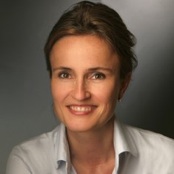The skin is constantly exposed to environmental stress factors such as injury, microbes, UV light and toxic substances. Therefore, by nature the skin is explicitly well furnished to restore tissue integrity and homeostasis following tissue damage. Cellular and molecular mechanisms that control tissue repair are complex and involve cell-cell and cell-matrix interactions directed by a network of soluble mediators. Furthermore, wound healing mechanisms are not unique to the tissue repair response. In fact, postnatal wound healing in part recapitulates processes in developmental biology and organogenesis. Signals controlling cell growth, migration and differentiation during tissue repair have also emerged as central mediators in cancer biology and other inflammatory disease processes.
Professor Eming leads a programme of work in tissue damage and repair that encompasses the range from basic structure-function analysis, through in vivo models, to human disease. The group is aiming at a deeper understanding on how the skin senses tissue damage and how these events translate into a regenerative response or disease. Our findings might provide the possibility to manipulate the healing response in order to readjust postnatal repair into regeneration and to develop novel strategies for pharmacological interventions in pathological healing conditions associated with diabetes mellitus, inflammatory diseases or ageing. In addition, we are interested to study the interrelation between tissue repair, mechanisms of cancer development and inflammatory skin diseases.


